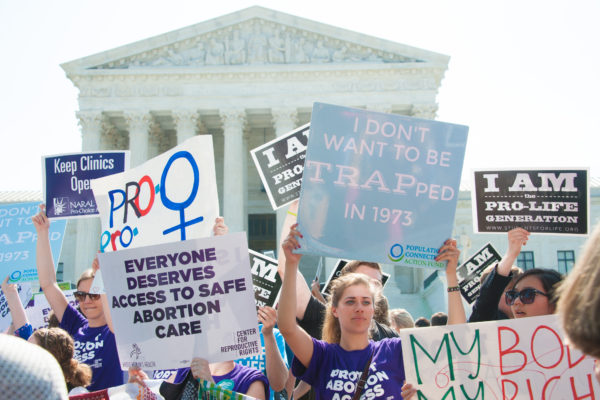WashU Expert: The Senate has learned nothing
“If anyone needed visible, painful evidence of how little progress the United States has made in attaining gender parity, this senate hearing was it,” argues Mary Ann Dzuback, chair of Women, Gender and Sexuality Studies in Arts & Sciences at Washington University in St. Louis.
WashU Expert: Trump’s Supreme Court and Roe v. Wade
The nomination of Brett Kavanaugh to the U.S. Supreme Court has renewed debate about the future of Roe v. Wade. Mary Ann Dzuback, chair of the Department of Women, Gender and Sexuality Studies in Arts & Sciences, suspects that conservative justices will continue chipping away at reproductive choice, rather than mount a frontal assault on the decision. But she warns that by undermining Roe’s guarantee of reproductive choice, the court risks its own reputation and authority.
Presidents ‘can’t always get what they want,’ suggests new book on judicial appointments
As the Senate prepares to consider nominees for two Supreme Court vacancies, some liberals fear that President Bush will use the opportunity to pack the High Court with conservative-leaning justices, pushing the law of the land dramatically to the right for years to come. However, a new book on the history of America’s judicial nomination process offers compelling evidence that a president’s ability to perpetuate personal political legacies through court appointments tends to be both short-lived and unpredictable. When it comes to the politics of Supreme Court nominees, president’s don’t always get what they want, suggests WUSTL Supreme Court expert Lee Epstein.
Ideological disagreements aside, a long confirmation fight would be a mistake, says Supreme Court expert
RichardsPresident Bush’s nomination of John Roberts to fill the Supreme Court vacancy created by Sandra Day O’Connor’s retirement has the potential to spark a messy confirmation process. “I think that both sides have been preparing for a war that seems inevitable regardless of whomever was nominated,” says Neil Richards, former law clerk for Chief Justice William Rehnquist and associate professor of law at Washington University in St. Louis. “On a personal level, I know John fairly well, and really like him. I’d imagine that he and I would disagree about many basic ideological and interpretive questions of law, but he’s very smart and a very decent human being who has the right sort of personality to do the job in a collegial and effective manner. So I strongly support his nomination, especially when I consider some of the other names on the shortlist, who lacked either John’s qualifications, his intellect, or his judicious temperament.”


